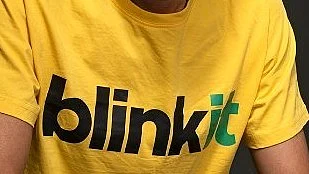Food and grocery delivery platform Zomato invested Rs 1,500 crore in its quick commerce subsidiary ‘Blinkit’, according to a regulatory filing accessed from the Registrar of Companies (RoC). This capital injection came Zomato infused Rs 500 crore in Blinkit earlier this year.
As per the filing, the board passed a special resolution to issue 7,612 equity shares at an issue price of Rs 19,70,181 each to raise Rs 1,500 crore. About three months ago, Zomato also raised Rs 8,500 crore through a Qualified Institutions Placement (QIPs) to strengthen its financial position and expand business.
Blinkit’s Dark Stores Expansion
This January, Blinkit has crossed the milestone of 1,000 dark stores. The quick commerce giant had 1,007 dark stores at the end of the December quarter (Q3 FY25). In the July-December period, the quick commerce platform added 368 new dark stores. This, in turn, also led to a capex of Rs 370 crore in the last two quarters.
However, Blinkit’s aggressive expansion has hurt its listed parent’s profitability. Zomato saw its profit drop to Rs 59 crore compared to Rs 138 crore reported in the same period a year ago.
The company also reported an adjusted EBITDA of Rs 285 crore, which is a 128 percent increase from the previous year. However, on a QoQ basis, consolidated adjusted EBITDA declined by 14 percent (or Rs 45 crore) despite the improvement in food delivery margins. This was “largely due to accelerated investments in expanding our quick commerce store network, where quarterly losses increased by Rs 95 crore QoQ,” said Akshant Goyal, Chief Financial Officer, Zomato.
Blinkit’s Profitability Playbook
Despite losses, Blinkit turned profitable even before the July-September quarter. The new-age company saw its revenue more than double to Rs 1,156 crore in Q2FY25 as compared to Rs 505 crore during the same time period a year ago. The current financial picture of Blinkit and other market players raises questions on the profitability and sustainability of quick commerce game.
Blinkit CEO Albinder Dhindsa has recently spoke to The Economic Times about the company’s profitability and its competitors. Calling it a ‘misconception’, he said it’s not mandatory that if Blinkit has become profitable, then others can also do the same.
According to the Blinkit CEO, prioritising overall market share is not a sustainable approach for quick commerce players. He said the success of 10-minute delivery concept will depend upon right moves because the market is large and still at its early stage.



























